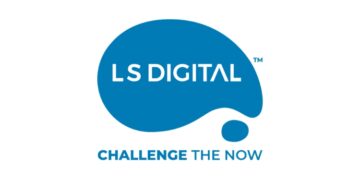Since March 2020, the world of business witnessed the rapid adoption of virtual collaborative solutions, including online events thriving on a cutting-edge technology framework, facilitating remote attendee participation and neutralizing contagion risk concerns.
Equipped with power-packed benefits, the digital phenomenon of Virtual Events emerged as a blessing in disguise for the events industry stakeholders, including marketing organizations, prospect audiences and international sponsors. Thus, the digital events successfully established their efficacy and positioned themselves as integral to the organizations’ growth strategy.
With the ease of restrictions, as in-person events make their way back, Virtual Events will most likely remain a high-demand option for several organizations. According to the Kaltura “The State of Virtual Events 2022” global survey report, 94% of the organizers are keen on planning Virtual Events in 2022, and 48% plan to increase the number of Virtual Events they host next year.
In this article, we elaborate on a plethora of far-reaching benefits that industry experts deem to drive strong relevance to the virtual ecosystem at par with the other event formats:
Virtual Events Pack Increased Marketability: According to Kaltura, a higher level of attendee engagement, increased registrations, and more significant ROI are the top three benefits that enhance the marketability of Virtual Events. With no geographical barriers and zero logistical challenges, online events acquire a highly-qualified global audience, high in-demand keynote speakers and international celebrity guests that attract more significant global sponsorships to propel revenue generation opportunities.
Virtual Events Navigate Force Majeure Events: Investments in Virtual Events enable organisations to de-risk their event investments against Force Majeure Events, such as terrorism, communal riots, political unrest, natural calamities, strikes, and cancellations, etc.
The current Ukraine crisis may lead to a rise in fuel prices, further increasing inflation rates worldwide. Amid the war, inflation, and Covid lockdown deja vu in China, hosting and organizing in-person meetings may attract increased health and safety concerns while being even more expensive. Thus, digital events stand out as the safest and the most cost-effective model featuring remote attendance with significantly reduced overheads.
Virtual Events Scaling Upto Metaverse: In the quest for scaling up audience engagement, Metaverse events are an attempt to mitigate the difference between virtual and in-person events. The virtual ecosystem of Metaverse proposes to bring real-life experiences into the digital realm that thrives on 3D spaces, 360-degree Videos, AI Avatars, Virtual Reality and Augmented Reality. The groundbreaking tech innovation is fast catching the fancy of the US and European business leaders.
Virtual Events Fuel Rapid Adoption of Hybrid Events: A 2021 Marklectic report found that 71% of organizations with over 5000 employees are drawn to the hybrid format that connects local in-person meetings with a global virtual audience. The hybrid event mode features an inbuilt virtual component that enables the marketers to develop a repurposed content marketing strategy. Marketers create post-event on-demand offers leveraging high-value gated assets such as e-books, videos, podcasts, and B2B marketing coaching sessions that build prospect engagement and generate leads that may turn into clients.
Post-event Analytics Improve Conversion Rates: Marketing teams leverage post-event analytics containing an extensive attendee database and actionable insights into audience participation trends to calibrate a strong lead nurturing strategy focusing on improving the conversion rates and maximizing the event ROI.
Summing Up: Admits of chaos there is always an opportunity. The Virtual Ecosystem has proved to be a game-changing phenomenon unleashing wide-ranging benefits to the stakeholders, including marketing organizations, global audiences and sponsors. A cornerstone for Metaverse, a revolution in tech innovation, the virtual ecosystem promises to steer the global health, political and economic fiasco, thereby gaining improved marketability scores. Additionally, the online model of meetings features the twin-powered hybrid event model disseminating post-event analytics and an extensive attendee database that marketers leverage to boost conversion rates, optimize future event strategy and launch future lead generation campaigns. Thus, the virtual ecosystem has established itself as a credible resource bearing tremendous relevance to the stakeholders’ continually evolving interests and preferences even after the return of in-person events.
Article Is authored by Paras Lohani, Founder & CEO, B2B Sales Arrow LLC.
















